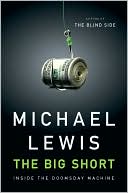Saving the Sun: A Wall Street Gamble to Rescue Japan from Its Trillion-Dollar Meltdown
Search in google:
For more than a decade, Japan's dismal economy -- which has bounced from deflationary collapse to fitful recovery and back to collapse -- has been the biggest obstacle to economic growth. Why has the world's second largest economy been unable to save itself? Why has a country, whose financial might in the 1980s was the most feared force on the globe, become the sick man of the world economy? Why has the industrial transformation once called the Japanese Miracle frozen into the Japanese malaise? Saving the Sun answers these questions by telling the story of Long Term Credit Bank, one of the nation's most respected financial institutions, and its attempts to transform itself into a Western-style bank. Through the stories of three extraordinary men, former Financial Times Tokyo bureau chief Gillian Tett brings to life the bank's long struggle to regain its financial health. In the process, she shines a light into the secretive world of Japanese banking where business is done in sex bars and gangsters lurk behind the scenes. And, in a fast-paced narrative, Tett chronicles the internal conflicts between reform-minded and tradition-bound factions within the bank, as well as the powerful and protective Japanese bureaucracy. Filled with dramatic scenes involving some of the most important figures and institutions in international finance -- -Paul Volcker, Lawrence Summers, John Reed, Goldman Sachs, UBS, and CSFB -- Saving the Sun charts the growing confusion between a government eager to revive the economy but unwilling to accept the necessary compromises and the Western bankers (profiled here for the first time) who too openly scorned Japanese capitalism and its paramount interest in social harmony over pure profit. Publishers Weekly Financial journalist Tett asks why the economic engine that achieved phenomenal growth for Japan between 1953 and 1970 has been stalled since 1990, with 2003 marking the fifth consecutive year of deflation. Puzzled by the persistent stagnation and dissatisfied with prevailing macroeconomic explanations, Tett has taken an intriguing alternate route to investigate what has gone wrong: she focuses on the history of the Long Term Credit Bank (LTCB) as it evolved from financing industrial customers during the boom years to expanding its portfolio with real estate loans in the 1980s and recent attempts to reinvent itself as Shinsei Bank after being purchased by a U.S. consortium in 2000. The twists and turns of the fascinating LTCB saga are cultural and political eye-openers, but Tett also thinks that the problems she found in the bank are symptomatic of Japan's economy as a whole. She argues that one consequence of Japan's reliance on old ways of doing business was the proliferation of nonperforming loans, burdening the banking system to the tune of more than a trillion dollars in the 1990s; she sees the meltdown of the LTCB and the need to put it up for sale as an inevitable result of failure to get tough with rafts of deadbeat borrowers. When the determinedly entrepreneurial U.S. consortium took over the LTCB with a vision of transforming it into a viable commercial bank, it soon discovered a vast number of hidden bad loans along with unexpected resistance to the consortium's new business strategies. Her candid assessment in this lively volume is certain to stir debate since she points an accusatory finger at what she characterizes as paralyzing traditions of consensus thinking, harmony, hierarchy, insularity and resistance to change, especially if the proposed changes originate with non-Japanese. Illus. not seen by PW. Agent, Amanda Urban. (Sept.) Forecast: A national broadcast and print media campaign that includes first serial rights to the Financial Times should attract the attention of business readers, especially those disposed to see the LTCB/Shinsei story as emblematic of challenges Japan's economy faces today. Tett's sense that hallowed Japanese institutions and traditions are to blame for the country's lackluster economic performance should heat up the discussion as well. Copyright 2003 Reed Business Information.
1Samurai bankers32Blocked reform183Money madness294The trillion-yen man445The bubble bursts546Takahashi's revenge707Onogi's choice818The Swiss gamble979Scapegoats and seeds11310An American dream12911"Cowboy"14612Negotiations16613Yashiro's dream18514Culture clash19615The Sogo shock20816Homma's death22117The fight with the FSA22718Stalemate23819Success?25020The bad loan surprise26021Saving the sun?274








